How Skills‑Based Hiring Enhances DEI & Workforce Strength

In today’s competitive job market, balancing equity and ability is key. Skills-based hiring offers major benefits for both Diversity, Equity & Inclusion (DEI) and effective recruitment. Focusing on skills instead of resumes helps reduce bias in hiring decisions. Traditional resume filters often overlook talent, especially when candidates come from different backgrounds or non-traditional paths.
Moreover, a diverse workforce boosts business outcomes. When companies include people from various racial, gender, and cultural identities, they can serve broader markets and attract more customers. Teams become more innovative and resilient when different perspectives come together. In short, inclusive hiring is not just a value—it’s a strategy for growth.
Why Skills-Based Hiring Works
First, skills-based hiring helps employers focus on what really matters—abilities. Rather than relying on degrees or prestigious job titles, companies assess what people can actually do. Studies show that hiring based on skills predicts job performance better than education or past roles.
Second, this method gives opportunities to candidates who followed unique paths. Veterans, career changers, bootcamp graduates, and self-taught individuals can shine when judged by ability rather than credentials. Many of these candidates have valuable transferable skills that traditional hiring might overlook.
Also, companies that focus on skills often lower their hiring costs. Businesses report up to 70 percent reductions in both cost-to-hire and time-to-hire. In addition, they see better employee retention and more flexibility in how they fill roles. This approach opens up opportunities for job mobility within companies, even when job titles differ.
DEI Benefits of Skills-Focused Hiring
When hiring decisions are based on skills, equity improves. Candidates no longer face as many barriers from education gaps or employment history. Research shows that skills-based hiring leads to greater diversity in race, gender, and age.
Organizations that adopt this model often hit their DEI goals more effectively. Inclusive hiring helps companies retain top talent and perform better financially. Diverse teams often bring new ideas and stronger problem-solving skills. They also build a more inclusive work culture that benefits everyone.
Additionally, using automated systems to scan resumes can unintentionally exclude qualified applicants. If a candidate doesn’t use the exact right words or formatting, the system might reject them. Skills-based approaches help solve this problem. When companies focus on core competencies instead of keyword matches, they identify talent more accurately and fairly.
Real-World Challenges and Solutions
Of course, switching to skills-based hiring takes effort. Many job seekers don’t know how to highlight their skills on resumes. Without the right wording, they may not make it past the first round of screening.
Employers also need to rethink how they assess candidates. Instead of looking only at degrees, they should use tests, work samples, or trial periods to evaluate real-world ability. Some companies invite applicants to work with the team for a day—a method similar to what restaurants use with trial shifts. This hands-on approach helps companies better understand a candidate’s skill level and fit.
While degrees still matter in some industries, they should not be the only measure. Skills-based hiring can work alongside traditional credentials. With the right tools, companies can verify both qualifications and practical skills. This makes the process fairer and more effective for everyone.
Looking Ahead: Reshaping Recruitment
The trend toward skills-based hiring is growing fast. Many companies now use it to screen candidates, replacing outdated methods like GPA or degree requirements. Some states have also updated job postings to remove unnecessary degree requirements. These changes help more people access good jobs and improve the overall hiring process.
At the same time, employers must be transparent about how they assess skills. They should clearly explain what they’re looking for and how they measure it. This builds trust with applicants and makes the process smoother. As technology evolves, these methods will continue to improve, making hiring faster, fairer, and more inclusive.
How Balance Staffing Supports Skills-Based DEI
At Balance Staffing, we believe in giving everyone a fair shot. We help job seekers show off their skills and find roles where they can succeed. We know how to highlight transferable skills and connect people to meaningful work.
For employers, we offer hiring solutions that reduce bias and improve candidate fit. We use skill assessments and modern screening tools to find top talent. Whether you’re looking for team players or leadership potential, we help you build a stronger, more diverse workforce.
Skills‑based hiring isn’t just a trend. It’s a smart way to meet today’s hiring challenges. It helps companies grow while giving job seekers more ways to succeed.
Are you a job seeker with strong skills but no traditional degree? Or an employer ready to attract more diverse and qualified talent? Contact Balance Staffing today. We’re here to help you build a better future—one skill at a time.



